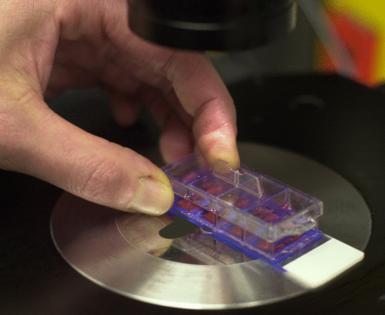University of Minnesota retracts pioneering studies in stem cells, Alzheimer's disease
Published in Health & Fitness
Years after questions were raised about their integrity, two of the University of Minnesota's highest-profile scientific discoveries have been retracted in one week — one that offered hope over the therapeutic potential of stem cells and the other that offered a promising path toward treating Alzheimer's disease.
The studies are more than a decade old and in some respects superseded by other discoveries in their fields. But the retractions of the Alzheimer's paper on Monday, and the stem cell paper on June 17, are setbacks for an institution that has been fighting to move up the U.S. rankings in academic reputation and federal research dollars.
Both studies were published in the prestigious journal Nature and collectively have been cited nearly 7,000 times in other papers, studies and articles. Researchers worldwide were using these papers to support their work years after they had been disputed.
That shows the harm in the drawn-out university investigation and the journal's retractions, said Dr. Matthew Schrag, a neurologist who scrutinized the Alzheimer's paper in 2022 outside of his role at Vanderbilt University. "We are squandering not only resources but the credibility and reputation of our profession by failing to address obvious misconduct."
The university in a statement on Tuesday said that it has many training and ethics requirements that weren't in place when these papers were published that should prevent future disputes over images, the focus of the questions in both studies, and resulting retractions.
The discoveries were notable in their days because they offered unexpected solutions to vexing scientific and even political problems.
Dr. Catherine Verfaillie and colleagues in 2002 reported that they were able to coax mesenchymal stem cells from adult bone marrow into growing numerous other cell types and tissues in the body. Only stem cells from early-stage human embryos had shown such regenerative potential at that time, and they were controversial because they were derived from aborted fetuses or leftover embryos from infertility treatments. President George W. Bush had banned federal funding for embryonic research, fueling a search for alternative stem cell sources.
Dr. Karen Ashe and colleagues similarly gained global attention in 2006 when they found a molecular target that appeared influential in the onset of Alzheimer's disease, which remains incurable and a leading source of dementia and death in America's aging population. Mice mimicking that molecule, amyloid beta star 56, showed worse memory loss based on their ability to navigate a maze. Ashe theorized that a drug targeting that molecule could help people overcome or slow Alzheimer's debilitating effects.
The problems leading to the retractions were remarkably similar. Colleagues at other institutions struggled to replicate their findings, which prompted others to look closer at the images of cellular or molecular activity in mice on which their findings were based.
Peter Aldhous first raised concerns in 2006 over the stem cell discovery as a science journalist and San Francisco bureau chief for New Scientist magazine.
...continued
©2024 StarTribune. Visit startribune.com. Distributed by Tribune Content Agency, LLC.







Comments